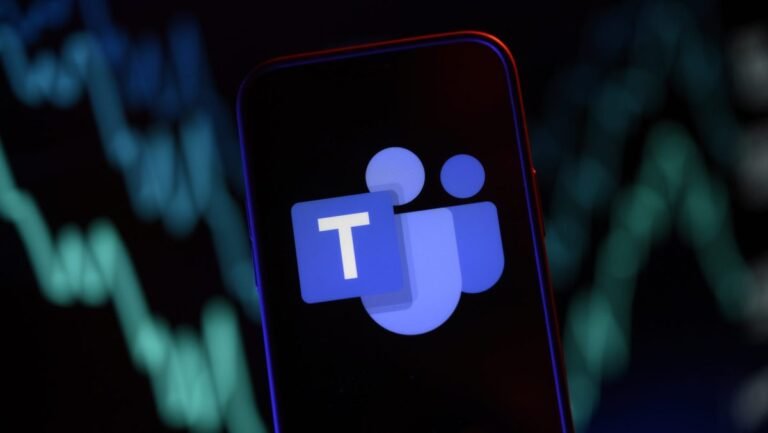
As the Gulf region gains growing strategic importance for the tech war between the U.S. and China, Microsoft makes a big move into one of its richest oil countries.
The minority stake will give Brad Smith, Microsoft’s vice chair and president, a seat on G42’s board of directors.
The funding comes amid U.S. politicians’ escalating concerns over G42’s ties with China.
Given the two countries’ increasing economic ties, it’s no surprise that G42, the AI poster child of the UAE, has also forged ties with Chinese firms.
Under the agreement, the Emirati company’s data platform and other key technology infrastructure will migrate to Microsoft Azure, which will power G42’s AI product development.

U.S. cybersecurity agency CISA has confirmed that Russian government-backed hackers stole emails from several U.S. federal agencies as a result of an ongoing cyberattack at Microsoft.
“Midnight Blizzard’s successful compromise of Microsoft corporate email accounts and the exfiltration of correspondence between agencies and Microsoft presents a grave and unacceptable risk to agencies,” said CISA.
CISA made details of the emergency directive public on Thursday after giving affected federal agencies a week to reset passwords and secure affected systems.
CISA did not name the affected federal agencies that had emails stolen, and a spokesperson for CISA did not immediately comment when reached by TechCrunch.
The emergency directive comes as Microsoft faces increasing scrutiny of its security practices after a spate of intrusions by hackers of adversarial nations.

Microsoft has resolved a security lapse that exposed internal company files and credentials to the open internet.
The Azure storage server housed code, scripts and configuration files containing passwords, keys and credentials used by the Microsoft employees for accessing other internal databases and systems.
Yoleri told TechCrunch that the exposed data could potentially help malicious actors identify or access other places where Microsoft stores its internal files.
The researchers notified Microsoft of the security lapse on February 6, and Microsoft secured the spilling files on March 5.
Microsoft did not say if it had reset or changed any of the exposed internal credentials.

Google Cloud on Tuesday joined AWS and Azure in announcing its first custom-built Arm processor, dubbed Axion.
Based on Arm’s Neoverse 2 designs, Google says its Axion instances offer 30% better performance than other Arm-based instances from competitors like AWS and Microsoft and up to 50% better performance and 60% better energy efficiency than comparable X86-based instances.
To be fair, though, Microsoft only announced its Cobalt Arm chips late last year, too, and those chips aren’t yet available to customers, either.
In a press briefing ahead of Tuesday’s announcement, Google stressed that since Axion is built on an open foundation, Google Cloud customers will be able to bring their existing Arm workloads to Google Cloud without any modifications.
“Through this collaboration, we’re accessing a broad ecosystem of cloud customers who have already deployed ARM-based workloads across hundreds of ISVs and open-source projects.”More later this year.

The tech world is incredibly focused on AI and its applications today, but artificial intelligence is hardly the only place where progress is being made.
If you want to get really into the weeds, pay attention to the progress that quantum computing is making, as made evident recently by an announcement from Microsoft and Quantinuum.
The pair of companies made what TechCrunch described as a “major breakthrough in quantum error correction,” which could make quantum computing systems far more usable than before.
The gist is that they encoded several physical qubits into a single logical qubit, which made it easier to detect and correct errors.
The error rate in quantum computing is a material issue to the technology’s performance, making the news that the two companies managed “run more than 14,000 experiments without a single error” pretty big news.

Microsoft has announced a new London hub for its recently unveiled consumer AI division.
It will be fronted by Jordan Hoffmann, an AI scientist and engineer Microsoft recently picked up from high-profile AI startup Inflection AI, which Microsoft invested in last year.
The news comes some three weeks after Microsoft CEO Satya Nadella unveiled a new consumer AI division headed up by Inflection AI’s founders, which include Mustafa Suleyman — co-founder of Deepmind, the AI company Google acquired in 2014.
At the time, Nadella said that “several members of the Inflection team” also joined Microsoft’s new AI unit (Bloomberg reported that most actually joined).
In a blog post today, Suleyman calls Hoffmann an “exceptional AI scientist and engineer,” and with Suleyman himself reporting directly to Nadella in the U.S., Hoffmann will take charge of the new London unit.

Heya, folks, welcome to Week in Review (WiR), TechCrunch’s newsletter recapping the noteworthy happenings in tech over the past several days (and change).
Famed startup accelerator Y Combinator had its Demo Days, and the venture desk took it all in with an appropriately skeptical eye.
Also this week, Microsoft and Quantinuum, a quantum computing startup, made a scientific breakthrough — or so they claim.
NewsCanoo paid for its CEO’s jet: Kirsten reports that EV startup Canoo paid the rent for the CEO’s private jet — $1.7 million— in 2023.
Bonus roundNSFW on X: The social media company has confirmed that authorized users on the platform can create NSFW communities, ahead of a change that’ll see all NSFW content on X filtered by default.

Microsoft and Quantinuum today announced a major breakthrough in quantum error correction.
This new system also allowed the team to check the logical qubits and correct any errors it encountered without destroying the logical qubits.
This, the two companies say, has now moved the state-of-the-art of quantum computing out of what has typically been dubbed the era of Noisy Intermediate Scale Quantum (NISQ) computers.
The physical qubits are entangled together so that it becomes possible to detect an error in a physical qubit and fix it.
Now, Microsoft and Quantinuum argue that their new hardware/software system demonstrates the largest gap between physical and logical error rates, improving on using only physical qubits by up to 800x.

As Microsoft unbundles Teams, it might not have the impact on Slack you thinkOne of the primary reasons that Slack joined forces with Salesforce in 2021 in a $28 billion deal was to give the communications company the clout to compete with Microsoft.
For years, company co-founder Stewart Butterfield railed against Microsoft bundling Teams with Office 365, calling it anticompetitive and saying at one point that Microsoft was “unhealthily obsessed with killing Slack.”The company went so far as to file a complaint against Microsoft with the European Union in 2020.
This morning, Microsoft announced it was finally unbundling Teams from Office 365 in the future, although current customers could continue to use the bundled license.
The market has matured to the point that many larger firms have made their choice, and since swapping out solutions isn’t a trivial matter, unbundling Teams is unlikely to have an appreciable impact on market share.
What’s more, rather than aiding Slack, he sees this as helping Microsoft to get Teams into more accounts where companies weren’t buying Office 365 licenses.

Microsoft will introduce a new version of Microsoft 365 and Office 365 subscription service that excludes Teams, unbundling a suite following scrutiny from the European Union regulator and complaints from rival Slack.
The move follows Microsoft agreeing to sell Office 365 suite sans Microsoft Teams offering in the EU and Switzerland last year.
The company introduced Teams as a complimentary offering to the Office 365 suite in 2017.
Microsoft has enjoyed an unfair advantage by coupling the two offerings, many businesses have argued.
In a statement to Reuters, Microsoft said the unbundling “also addresses feedback from the European Commission by providing multinational companies more flexibility when they want to standardize their purchasing across geographies.”Reuters reported that Microsoft will introduce the new Office 365 lineups on Monday.













